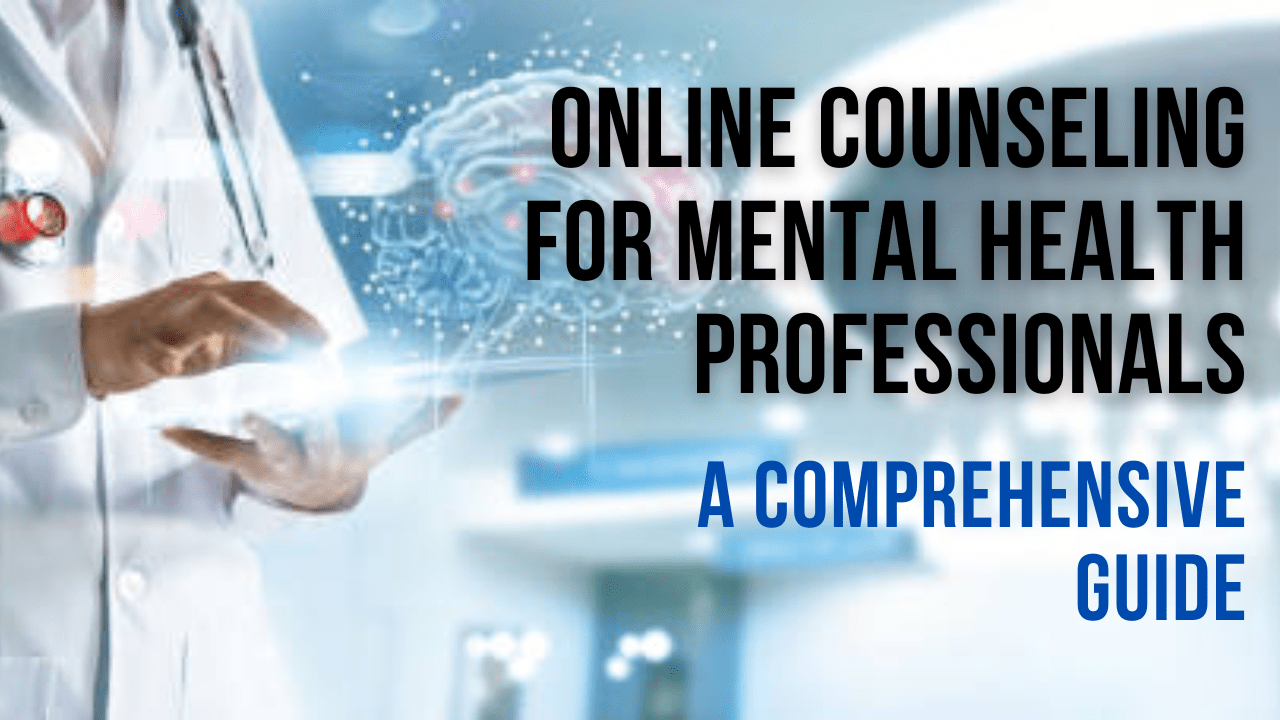
Is traditional in-person mental health counseling still the best option for mental health professionals?
Online counseling services have emerged as a game-changer in the mental health industry.
It is a growing field that offers a number of advantages over traditional in-office therapy, including convenience, accessibility, and affordability. If you are a mental health professional, this blog will lead you through the wide scope of online counseling.
Highlights:
- Benefits of Online Counseling for Mental Health Professionals
- Role of Customer Relationship Management
- A User-friendly designed website
- Client Testimonials and Reviews
- Digital Marketing Strategies
Benefits of Online Counseling for Mental Health Professionals:
Online counseling services extend the reach of mental health professionals, breaking geographical barriers. This accessibility broadens the client base and reduces overhead expenses.Furthermore, the convenience of online counseling is a significant benefit. Professionals can adapt to varying schedules, offering timely support and achieving cost savings by eliminating the need for physical office space. The flexibility enhances the client-counselor relationship, as clients find it easier to seek help.
In the digital age, online counseling fosters a great privacy and comfortable environment for clients, encouraging open and honest therapeutic interactions. This strengthens the client-counselor relationship, making it an appealing choice for professionals in the field.
Role of Customer Relationship Management
In the realm of online counseling, Customer Relationship Management (CRM) plays a pivotal role. It serves as a comprehensive tool for managing client interactions, ensuring a client-centric approach, and streamlining essential processes.Professionals can efficiently store client information, track session histories, and monitor progress, facilitating personalized counseling. It also aids in appointment scheduling, sending automated reminders, and maintaining effective communication with clients, contributing to improved client engagement and session attendance.
In the online counseling landscape, a well-implemented CRM system is instrumental in enhancing the overall quality of care and fostering client retention and growth.
A User-friendly website Design
Creating a user-friendly website for online mental health counseling professionals is essential for establishing a strong online presence and connecting with potential clients. A well-designed website should feature intuitive navigation, mobile responsiveness, clear information, online appointment booking, speed and performance, contact accessibility, and visual appeal.Intuitive navigation makes it easy for visitors to find the information they need, such as your services, background, and contact information. Mobile responsiveness ensures that your website looks and functions well on all devices. Clear information concisely and engagingly communicates your services, areas of expertise, and the benefits of online counseling. Online appointment booking simplifies the appointment scheduling process for potential clients.
Speed and performance prevent slow loading times that can deter users. Contact accessibility makes it easy for visitors to get in touch with you. Visual appeal uses professional and calming design elements. A user-friendly website attracts potential clients, enhances their experience, and makes them more likely to engage with your counseling services.
Client Testimonials and Reviews
Testimonials and reviews boost the credibility and trust of the clients. These endorsements provide social proof, making it more trustworthy for potential clients seeking professional counseling.Including testimonials and reviews in the blog can also improve its search engine optimization (SEO). When these endorsements contain relevant keywords and positive feedback, they can contribute to better search engine rankings, potentially increasing the blog's visibility and reach. sense of community and interaction around the content.
Showcasing positive testimonials and reviews helps the professionals build a stronger connection with its target audience of mental health counsel, demonstrating that their comprehensive guide is not only informative but also highly regarded by their peers.
Digital Marketing Strategies
Digital Marketing leverages various strategies to promote services and effectively connect with the target audience in the digital realm. A well-optimized website is the cornerstone of digital marketing. It needs to be search engine optimized (SEO) to ensure it ranks prominently in search results.Content marketing is another key aspect, involving the creation of valuable articles, blog posts, and resources to establish your authority in the field. Also, Pay-per-click (PPC) advertising allows you to place ads at the top of SERPs for specific keywords. Engaging with your audience through social media, using online advertising, staying connected via email marketing, listing services in online directories, and collaborating with telehealth platforms are all essential components of digital marketing.
By embracing these strategies, mental health professionals can increase their online presence, expand their reach, and offer support to a broader spectrum of individuals in need of mental health services.
Other Relevant Questions
What are the different types of online counseling?
There are various types of online counseling services. They are: Video Counseling, Phone counseling, Chat and text-based counseling, Email counseling, app-based counseling and group counseling.How to get started with online counseling?
If you are a mental health professional who is interested in offering online counseling services, there are a few things you need to do to get started:- Get licensed in the state(s) where you want to offer online services.
- Choose a secure video conferencing platform.
- Develop a website or online presence to promote your online counseling services.
- Create a confidentiality policy and informed consent agreement for your online clients.
- Create a friendly environment with the client.
- At the end of the session, check the progress regularly.